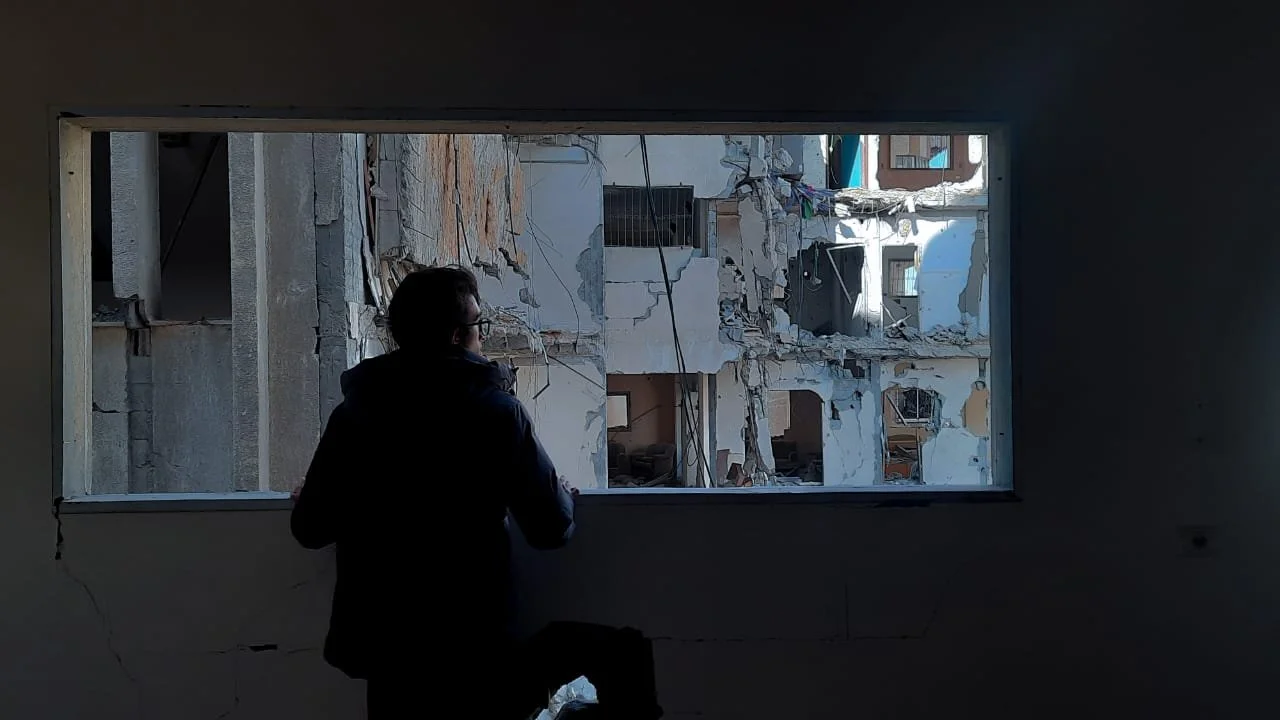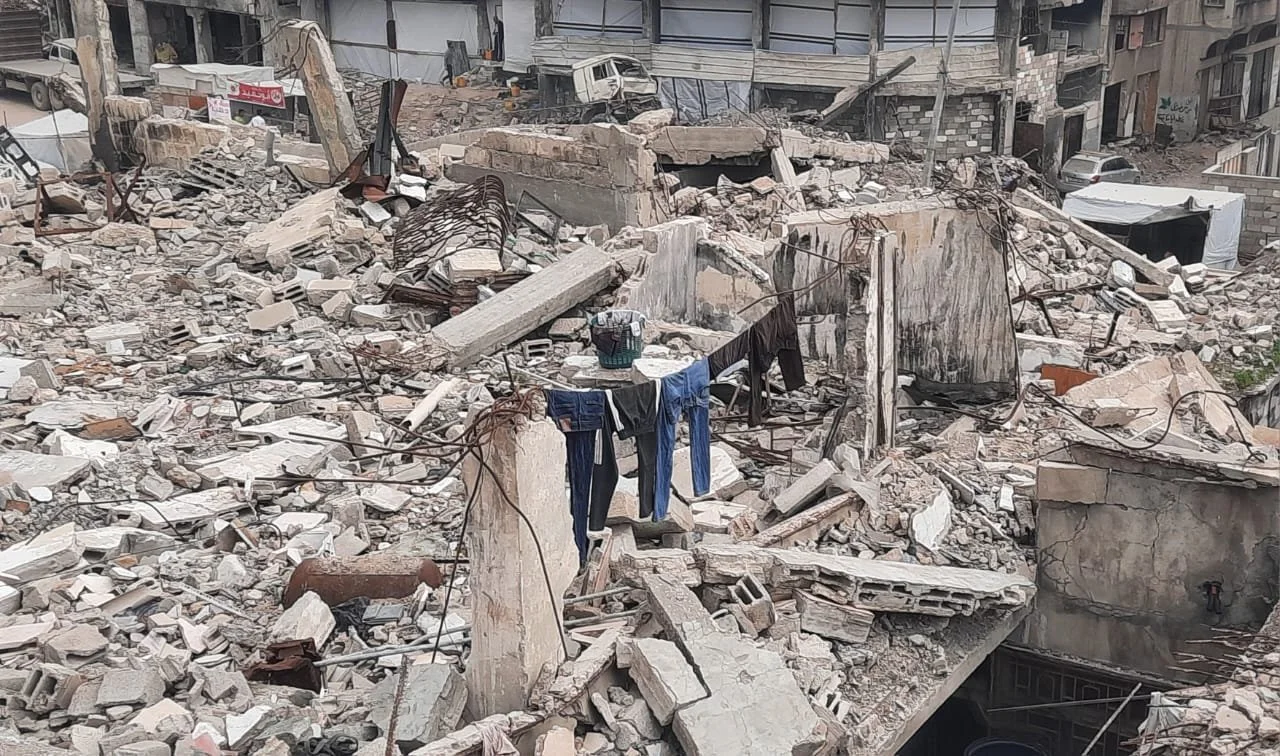Letter from Gaza, July 2025
Haidar al-Ghazali
How is Your Heart Today?
I don’t want to upset you with this note, but I’ve learned that writing can explode this weight off my chest, and that whoever reads my pain carries away a small part of it. I’m sorry the choice fell on you, but something tells me that you can act upon this world.
I’m asking after your heart. I know it feels for birds who go hungry and children who sleep in back streets or under the window-fronts of cafés. How is it doing now - when a whole people is being killed?
I ask that you always check on the state of your heart. A lot of the time you might not get an answer, but then you’ve tried, and gone through an experience. And this is life, my friend: an attempt, and an experience.
I understand life too, perhaps in a way that only I know, here where the moment of life and its brightness fragment, and death has dominion over time. I try not to leave the house which, by some chance, has not been destroyed. I try to create an ordinary life in it, I try to forget, to close my eyes to the hurt that stares, my ears to the sorrow that clamours. On my way to life I found I had not lived, I, who till this moment, have not died.
My attempts have all failed; life does not want me, it landed me in wars and hardship. I haven’t told you that the first war I lived was when I was four. It was in war’s power to kill me, and I would have been forgotten. But it preferred to leave me not alive, and not dead. I am that space between life and death.
Don’t ask after my heart. And don’t believe me when I say I’m good. The only good here is that you, my friend, are reading this, and that you can go out and protest against governments, you can scream with the voices of the children in their shrouds, and you know that even that is not enough to bring a single drop of water into the siege - but still you try.
The only good is your heart that still feels the wounds, your eyes that well up at every photo of a child amputated before she could walk. The good, my friend is that you want bring down these Liberal systems that rule the world with a dictatorship masquerading as democracy!
I said I don’t leave the house but here I am writing after I’ve come back from the hospital. We heard news that sent us running: they said my father’s brother was hit.
My uncle is not a military man, he doesn’t know who the founders of Zionism were, doesn’t memorise the dates of our dispossession. He loves the world without a reason even though he’s reached forty without ever traveling. He treats people as though they were made of glass. He buys clothes from the poor and sells them to other poor, from a tent at the gate of the hospital. What he makes often can’t buy one kilogram of flour to feed his kids.
In this moment my friend I felt the meaning of death and disappointment and hope and yearning and memory and injustice and life and cruelty. Many stories, my friend, many possibilities came to me from every fear, every terror, especially since I saw the pools of blood in the tent from which my uncle sold the clothes. I know this blood, it has a smell that I know, like the love my uncle distributes. At this moment, my friend, I realised that I am not in my twenties as it seems; running exhausted me, it threw a terrible dizziness into my head, and knives into my knees. I am no longer that boy who used to run in his street, who played football and broke the shop windows. I’ve grown, grown old, old. A missile (rocket? shell?) from an Israeli drone fell at the hospital gate, by the market, and it left dead and wounded.
A hospital, a market, a missile - a trinity that will only exist if the plane is Israeli.
I reached the hospital, the Ahli Mamdani [Local Baptist] Hospital. I asked for the Emergency Room, they said it’s “there”.
“Where?”
“That tent.”
I won’t say how embarrassed I was that I’d used the word “room”. The Emergency Room had become a tent, a tent large and ragged, like our grief.
The capacity of the tent was less than the size of the event and the place was bursting with the smell of death and the noise of laboured breath - and farewells. My uncle, I looked for my uncle in all the beds and I found him at last on the tiles of floor, his upper body bare, doctors and relatives trying to stop the haemorrhage in his leg with a rag that a moment ago was his shirt.
He’s awake, and that’ a source of hope, but his wounds are bleeding and I feel the pain of them in my heart, wringing it as our mother wrings our clothes so they leave her hands dry.
I left the tent. I cannot bear to see all this death all at once. I want, when we speak of the colour red, to think of love, only of love.
My friend, I cannot take any more partings. The birds in my heart have lost their nests, they search for the eyes of my loved ones who had lived there for so long.
Out there, my grandmother, my uncle’s wife, his children, wouldn’t believe that my uncle was alright. They’d seen his blood in the tent.
I want to tell you that my grandmother left her tears on my shoulder, heavy on my shoulder, they demanded that I write to you. I do not have the choice to not write. These wounds in my heart, these tears in my grandmother’s eyes, this blood my father’s brother shed, and all the stories I have lived - none of these are mine alone; they belong to our generations that will come tomorrow and will know the truth, the generations who will direct their anger at the real criminal. They belong to your generations who will unite the world in the name of all that is human, against the demons who sow hate.
I tried to comfort my grandmother. I asked her to go home. She agreed reluctantly, her eyes on the emergency tent, gazing at its haemorrhaging heart.
My uncle had to have an X-ray. Shrapnel had gone into his legs and his shoulders; strange shrapnel, the size of a lentil, it entered from one side of his body and exited from the other. We found no stretcher but an old bedstead with a bed of iron that spiked into his flesh as the wheels rumbled over the stones and ditches left in the hospital courtyard by past shellings.
In the whole hospital, just one X-ray machine, and one for the CT scans. Corridors full of wounded. In front of us die children, men, women who could have lived if the health system had not collapsed, if there wasn’t this long queue. My uncle, bleeding profusely, was at the end of the queue because his injuries were the least dangerous.
My friend, that iron bed he lay on was a luxury. An old woman was on the floor waiting her turn, full of wounds. Old on the cold floor, my friend, staring at the ceiling. This body of yours, Lady, I repeat to myself, this body of yours curses the entire world and makes a bitter lie of our lives.
I left the queue, the whole bloodied scene. I went to the gate and watched the endless emergencies arrive, the vehicles loaded with the wounded and the martyrs.
A whole family killed in their home. A young man killed when he went to collect food. They play with us, hunters with prey.
Injuries coming in from al-Shifaa Hospital. Why are they bringing people from al-Shifaa?
“The Mamdani is only hospital in North Gaza that still has an X-ray machine.”
My friend who lives beyond all these seas,
don’t ask after my heart
my heart is very white
stained with all the dark things you know
it smells of roses
and tastes of sorrow and loneliness.
You reading this letter is the only thing that makes me feel I am not alone.
My friend,
How is your heart today?


